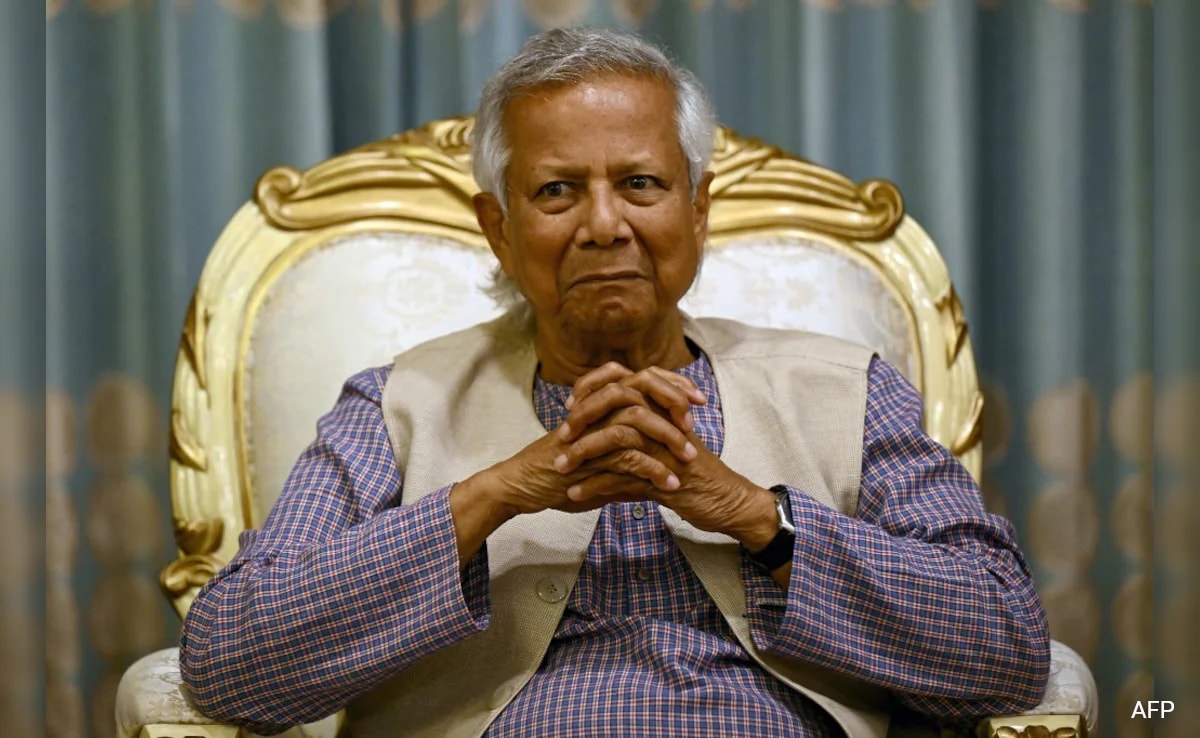2024-08-19 09:29:41

Mr Yunus accused Sheikh Hasina of systematically destroying the country’s institutions.
New Delhi:
In a key address to diplomats in Dhaka on Sunday, Muhammad Yunus, the Chief Adviser to Bangladesh’s interim government, called for comprehensive reforms before holding the next general elections. This meeting marked Mr Yunus’ first engagement with the diplomatic community since assuming office on August 8, following the resignation of former Prime Minister Sheikh Hasina.
Mr Yunus, a Nobel laureate, took charge amid a volatile political landscape that saw mass protests and violence resulting in the ousting of Ms Hasina. In his address, Yunus outlined the interim government’s roadmap for a stable and democratic Bangladesh, starting with a free, fair, and participatory election.
“We will hold a free, fair participatory election as soon as we can complete our mandate to carry out vital reforms in our election commission, judiciary, civil administration, security forces and media,” he told diplomats, including India’s High Commissioner in Dhaka, Pranay Verma.
Restoring Normalcy
On August 5, Ms Hasina, aged 76, fled Bangladesh by helicopter to India as protesters overran the streets of Dhaka. Her 15-year rule, marked by allegations of human rights abuses, came to a dramatic end. The weeks leading up to her ousting were bloody, with more than 450 dying during the unrest and several reports of attacks on Bangladesh’s Hindu minority community.
The Chief Adviser said restoring law and order in the country is a top priority for his government. “We will be close to normalcy within a short period, with the unwavering support of our people and patriotic armed forces,” Mr Yunus said. “The top priority of the Interim Government would be to bring the law and order situation under control…The armed forces will continue to serve in aid of civil power as long as the situation warrants.”
Reviving Economy
In addition to political reforms, Mr Yunus spoke about the need for robust economic reforms. The country had suffered under what he described as Ms Hasina’s “brutal dictatorship,” which, according to Mr Yunus, had led to widespread corruption and mismanagement.
“Our government will undertake far-reaching economic reforms to restore macroeconomic stability and sustain growth,” he said.
Mr Yunus accused Sheikh Hasina of systematically destroying the country’s institutions during her 15-year tenure. He alleged that elections under Ms Hasina’s rule were rigged, and democratic rights were suppressed.
“In their efforts to stay in power, Sheikh Hasina’s dictatorship destroyed every institution of the country,” Mr Yunus said. He described the judiciary as broken and accused the former administration of allowing political patronage to rob banks and plunder the state coffers.
The Nobel laureate described the recent mass uprising as a “Second Revolution,” led by students and ordinary citizens who sought to reclaim their democratic rights.
International Support
In his message to the international community, Mr Yunus called for continued support in rebuilding Bangladesh and transitioning to a fully functional democracy. He assured the diplomats that Bangladesh would maintain its role as a proponent of multilateralism, with the United Nations at the core of its foreign policy.
“We believe all our friends and partners in the international community will stand by our government and people as we chart a new democratic future,” Yunus said.
“Bangladesh stands at the crossroads of a new beginning. Our valiant students and people deserve a lasting transformation of our nation. It is a difficult journey and we need your help along the way. We need to fulfil their aspirations. The sooner the better,” he added.
Mr Yunus also welcomed the United Nations’ decision to send a fact-finding mission to investigate the recent violence, committing to cooperate fully with the international inquiry.
Muhammad Yunus,Sheikh hasina,Bangladesh,bangladesh army,bangladesh protest
Source link
![]()
